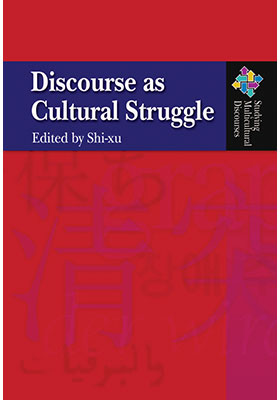Discourse as Cultural Struggle
(話語與文化鬥爭)
ISBN : 978-962-209-811-4
Studying Multicultural Discourses
November 2006
214 pages, 6″ x 9″
Ebooks
Also Available on
Discourse as Cultural Struggle challenges the cultural imbalance in current research traditions, and argues for a culturalist perspective in facilitating better intercultural exchange amidst accelerated processes of globalization. It is the first engagement with discourses in non-mainstream cultures. Covering a wide range of issues in public, professional, media and intercultural communication, the twelve original essays here tackle culturally pressing issues by aligning viewpoints from various geopolitical contexts. This is a thought-provoking book for scholars and researchers of language and communication studies who seek innovative approaches in their fields of interest.
“Here is a book that takes diversity seriously and lifts it to the level of an epistemic paradigm. What we know is culturally constituted and discursively articulated; this relativism is converted into an absolutism due to historical power relations, and we find ourselves a curious situation in which anything that suggests diversity at fundamental levels of thought becomes a serious theoretical problem. This book addresses this absurdity, and in the context of globalization, the exercise is to be welcomed.” —Jan Blommaert, University of London
“This volume opens up new and innovative perspectives for all interested in discourse analysis, cross-cultural communication, and social change. It links and relates approaches which originate more in the ‘West’ with those stemming from the ‘East’. Thus, a challenging debate is finally made possible which ultimately could and should lead to more collaborative research and, even more importantly, to better and mutual understanding.” —Ruth Wodak, Lancaster University
“This fine volume enters the large field of Discourse Studies by insisting that cultural knowledge of discourses is essential, and thus necessary for our understanding of how discourse shapes human communities and relations among them. It is a rich collection of conceptual and case studies, a fine addition to our literatures, and worthy of our careful study.” —Donal Carbaugh, University of Massachusetts at Amherst




